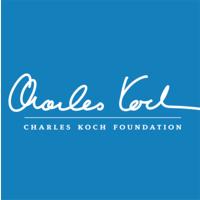EBOO PATEL: My closest friends in high school, the kids I ate lunch with, included a Cuban Jew, a South Indian Hindu, a Nigerian Evangelical, a Mormon, a Lutheran and a Catholic. And we talked about everything under the sun as 16-year-old suburban high school kids are want to do. We never talked about religion. And even though there were parts of all of our lives that were at least a little bit religious, it generally manifested in something along the lines of 'I can't play basketball this Sunday because my mom is making me go to some religion thing', but our families had a certain set of expectations around our religious participation, and some people, especially my Latter-Day Saints friend, was especially involved in that kind of stuff. So why does it matter that religion was not part of the conversation? For a couple of months during my high school career a group of thugs in my school started going after my Jewish friend and they would call him ugly anti-Semitic slurs in the hallway and they would scrawl really terrible things on classroom desks. And I saw my once vibrant friend slink into the shadows of the school. He would come to school right as the opening bell rang; he would leave right as the closing bell rang. And I watched this happen over these couple months. A few years later when we were home from college for a summer, he brings this up with me and he says "Those were the worst months of my life. And the part of it that really sucked wasn't what those thugs did to me, it was watching you watch me suffer and do nothing. Why did you do nothing?"
And I'm 43 years old and I've done a lot of dumb things and that's the most humiliating moment of my life – it's my friend calling me out on a moment of profound weakness, like, the opposite of courage. And I told the story to my dad, who is not a ritualistic Muslim at all, but he was like, "You failed your friend and you failed your faith." "Like what do you mean I failed my faith?" He's like, "We're Muslims, Eboo. We stand up for people who are hurting. That's the core of the religion. That's what it means to be Rahmatul Alameen -- a mercy upon all the worlds -- as Allah says to the Prophet Mohammed in the holy Quran." And that's when I started to think to myself: Why is it that my friend group wasn't talking about religion, but these thugs in my school we're happy to be openly anti-Semitic? And it's one of the early experiences in my life that got me thinking about how important it is to be positive and proactive about engaging religious identity towards interfaith cooperation. And that is now a norm in American life. Like your elementary school where you send your kids, or the hospital where your kids were born, those are all religiously diverse places and that religious diversity matters.
Let's think for a moment about how religious diversity intersects with healthcare. Different religious orientations literally have different definitions of when life begins, have different definitions of what to do when a baby is born, have different definitions of what a good life is and have different definitions of when a person dies. So if you are a nurse or a doctor and you enter the room of a Buddhist family whose grandfather is on the bed about to pass into the next world and you point to the brain scan and say, "We're very sorry that Grandpa has passed," and the family looks at you and says, "Grandpa is still hooked up to the breathing machine and still has breath, he's not dead." Those Buddhists have a different definition of death than Western science. That doesn't mean you have to agree with their definition, but if you're a doctor you'd better know how to handle that situation. And there are 4 million Buddhists in America; there are 4 million ELCA Christians in America; 2 million Episcopalians; 6 million Methodists -- what I mean to say is that religious minority communities are growing. There's about 4 million Muslims in America, for example, a couple million Hindus. Increasingly our educational, our health care facilities, our athletic leagues, our businesses are going to be religiously diverse and part of what every educated American needs is the ability to positively engage that religious diversity.







